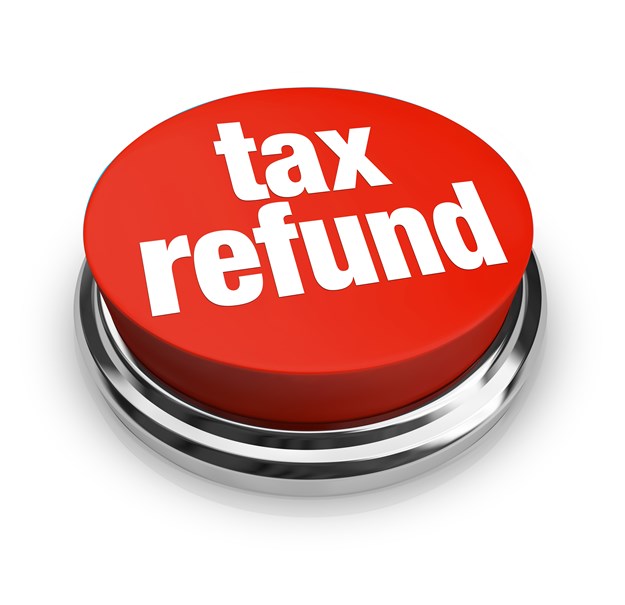Survey of fleet executives from firms of all sizes identifies significant business concerns
A rare survey of fleet-owner and -manager attitudes to the significant issues they face has found the light of day.
Software firm Verizon Connect recently released the findings of the study – the 2020 Australian Fleet Trends Report – undertaken by ACA Research, which confirms fuel costs are a central concern, with efficient use front of mind.
Based on responses from 200 senior Australian fleet executives, the survey examines views surrounding driver behaviour, fuel usage, fuel tax credits and vehicle maintenance, and also covered the following industries: services, construction, production, retail and education.
On some issues, they are divided into ‘distribution’, ‘construction’ and ‘production’.
ATN sought out Greg Newham (pictured below), head of Verizon Connect in Australia & New Zealand, for his take on the survey’s findings.
SEARCH FOR SOLUTIONS
Automated time sheets are seen as a solution for errors and overpayments by 52 per cent of respondents.
Interestingly, ACA Research records a lessening of confidence over the past three years on these points amongst fleets of 5-19 vehicles and 20-49 vehicles – by as much as 24 per cent amongst the former.
It points to a significant reduction amongst small operations of trust, not only in staff but in technology, to below 50 per cent, though Newham sees broader impacts in play.
“I’m not sure I see it necessarily as a trust issue,” Newham says.
“There is a lot of pressure on businesses to be more efficient, especially on small businesses.
“There’s a lot going on. Small business owners have got issues from a compliance point of view, cashflows, they’re watching all of their dollars.
“They need to verify timesheets, for example. So we provide tools that just make it simple.”
Our earlier coverage of the fleet report, here
There is a different dynamic amongst bigger fleets.
“Larger fleets will have more structured processes and procedures in place, so their challenges primarily lie around verifying,” the report states.
On the other side of that coin are concerns that rise with the fleet size over fraudulent use of fuel cards, at 62 per cent of fleets with 150+ vehicles, while the two smaller cohorts see that concern falling by 31 and 32 per cent of 5-19 vehicle and 20-49 vehicle fleets, to 26 and 38 per cent respectively.
Regarding fuel usage by staff, Verizon believes the figures throw up a huge issue, but somewhat more for the larger than the smaller end of the market.
“Anecdotally, small businesses are often less concerned about fuel usage by their staff,” Newham says.
“From my own experience, they don’t really care because, if they’ve got a close working relationship with half-a-dozen people, they don’t mind a bit of that because it’s a bit of give-and-take.
“But a big business? Different story! Because you’re managing costs. So, it’s a different environment you’re working in.”
BOWSER BANE
Fuel prices continue to test fleet-owners, with the middle two cohorts, 20-49 and 50-149, at 84-91 per cent, around 10-15 per cent more concerned about how to manage fluctuations than either the small or big end of town.
“Mid-sized fleets are especially challenged by fuel price fluctuations; with many purchasing large volumes of fuel on a fairly ad-hoc basis,” the report observes.
“Larger fleets are more likely to have some fuel management procedures in place already.”
A generally higher fuel spend, at an average of eight per cent up on the previous 12 months, brings the claiming of fuel tax credits into sharp relief, with most businesses making claims at both rates.
“A high proportion of businesses are therefore facing complex data capture, validation and reporting requirements,” the report notes.
While fuel prices generally have eased somewhat over the preceding decade, Newham sees the difficulty in the fluctuations and lack of control, especially for those managing smaller fleets.
“If you put yourself in the shoes of a small business: the fuel cost is a variable cost. It fluctuates 20 cent [per litre] from week to week.
“The cost of the fuel is something you cannot control. So, all you really can control is how it’s being used.
“So, are people idling unnecessarily, sitting there having their lunch with the air conditioner on for half an hour? [Are they] going the long way around, for instance, to jobs?
“They are the things you can control as a business owner, if you’ve got the tools.”
CREDIT WHERE IT’S DUE
The survey indicates that while 62 per cent of businesses are claiming Fuel Tax Credits (FTCs) 36-40 per cent of all fleets are potentially under-claiming and around 20 per cent aren’t but could.
Record keeping is the biggest issue around claiming FTCs and remaining up-to-date with the complex regulatory standards.
Those struggling with record-keeping made up 52 per cent of respondents.
Of those, 25 per cent have difficulty keeping accurate records, 22 per cent are unable to verify off-road usage of vehicles or equipment, 16 per cent are unable to calculate auxiliary use of fuel and 15 per cent see it as not worth the effort.
Regulation and dealing with the Australian Taxation Office (ATO) were issues for 33 per cent of respondents, while 32 per cent felt confused on what is needed to claim (21 per cent), or were unsure what is classified as a private or public road.
“It’s a huge problem! Because if you don’t have a tool that tells you how long you’ve been off-road, how do you actually estimate the time you’ve spent off-road,” Newham says.
“If you’re at a loading dock offloading you’re off-road.
“What we find is that companies are either under-claiming because they don’t want to take the risk, they’re over-claiming because they’ve taken a stab in the dark or they’re not claiming because they don’t know they can do it.”
TAXING TIME
And dealing with the ATO? Well, there’s little mystery there. It’s the same for all of us, if around doubly so for ‘distribution’ (31 per cent) than ‘construction’ (12 per cent) and ‘production’ (17 per cent).
“If you’re a small business, quite often you’re doing everything,” Newham notes.
“The last thing you need is a headache with the ATO. It is stressful. Any conversation with the ATO is going to be a stressful situation.
He later notes that, with limited resources: “The last thing you want is to go through an audit or having
someone crawling all over your business and seeing what you’re doing.”
Larger firms have their own issues.
“Bigger businesses have more resources but this is a burden on them as well from the compliance point of view.
“They do have better resources to manage it but they again need to have the data to support what they are doing.”
UPKEEP HEAT
Interestingly, given larger fleets tend to have more resources to throw at their systems and truckmakers have never made it easier, firms of all sizes report difficulties in handling vehicle maintenance. But those with fleets of more than 50 vehicles, at 86 and 81 per cent, find it more of an issue than those with fewer by 19 and 14 per cent.
More than three quarters find it challenging either to keeping track of vehicle maintenance schedules or finding time to take vehicles off the road for scheduled maintenance or just generally.
“Key to note is that challenges are not just about managing schedules, but also ensuring that schedule servicing is followed through on (i.e., managing the vehicle being off the road),” the report says.
The 50-149 vehicle cohort is particularly affected, with 52 per cent falling behind on maintenance, with 150+ at 38 per cent the next most troubled and the smaller pair at 31 and 35 per cent.
“Without dedicated fleet managers, mid-sized fleets are falling behind, indicating they need to introduce more sophisticated fleet management tools,” the report says.
KEY FINDINGS FOR COMPANIES
• fleets are struggling to manage rising (and increasingly volatile) fuel costs
• mid-sized fleets are especially challenged by fuel price fluctuations; with many purchasing large volumes of fuel on an ad-hoc basis
• 20 per cent of Australian businesses are not currently claiming FTC and could be missing out on a valuable source of business cost recovery
• mid-sized fleets are most likely to see a risk of underclaiming, potentially lacking the systems to properly calculate the different types of fuel usage across all vehicles in their fleet.
“The fleet business in Australia is growing rapidly and this has been exacerbated by the pandemic – we now view fleet businesses and their drivers as providing a critical service,” Newham says.
“However, as fleets grow, it becomes more difficult to oversee and control the utilisation of their assets.
“Many executives conduct their business in an informal manner, and it is now more timely than ever for businesses of any size to not only improve cost management, but also look after the health and safety of a distributed workforce that is often at the coalface of the supply chain.”
The report highlights the value placed on technology, particularly for growing fleets, to boost oversight vehicle use to protect drivers and vehicles.
“A driver of ours had been reported for speeding by a member of the public. In this situation the software was showing the driver was in fact driving within the speed limit, so with that credible data, we did not need to take further action,” Verizon quotes Traffic Diversion Group spokesperson Cathy Druschky as saying.





